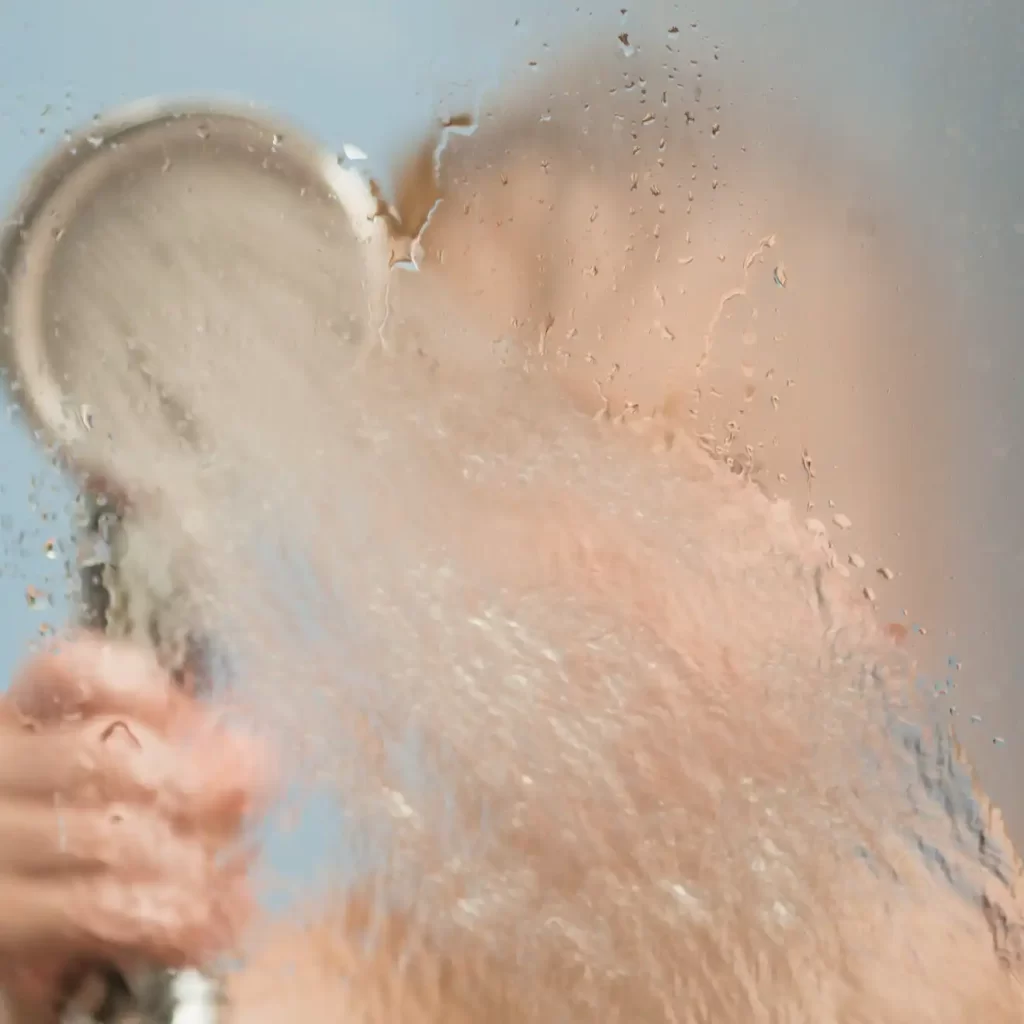Blog News
The Impact of Water Temperature on Hair
Health
Water temperature can significantly affect your hair health. Let’s explore the effects of washing your hair with hot and cold water and find out the best temperature for maintaining healthy hair.

Effects of Washing Your Hair with Hot Water
Washing your hair with hot water has its advantages. Higher temperatures open pores, allowing shampoo and other products to penetrate the scalp more effectively. “Washing your hair with hot water may help remove dirt, grime, product, and oil more effectively than cold water.”
However, hot water can strip the hair of its natural oils, leading to dryness of the hair and scalp, causing irritation and itchiness. “The state of the scalp has an enormous impact on hair growth and health, so a dry, unhealthy scalp with dandruff can inhibit hair growth or weaken the strands.” In addition, hot water can exacerbate conditions like seborrheic dermatitis and eczema.
Hot water can also affect the look of your hair: “When hot water is used to wash hair, your hair follicles are exposed to environmental and oxidative damage, which can lead to hair fall. Hair fall accelerates due to the loosened grip of the damaged hair roots. This can also result in premature greying.”
Benefits of Washing Your Hair with Cold Water
- Preserves natural oils: Unlike hot water, cold water doesn’t dissolve natural oils, which is beneficial for the scalp and hair health and growth. “Keeping your hair’s natural oils helps limit dryness, itchiness, and irritation.”
- Increases shine: “Cold water works on the hair by closing cuticles and pores in the scalp, which increases hair’s shine since the closing of pores retains moisture.”
- Added moisture: Cold water closes the pores of the scalp, retaining the hair’s natural moisture and any moisture from conditioners. As a result, the hair can better reap the benefits of the product, leaving it looking and feeling healthier and more hydrated.
- Helps with dandruff: Dandruff results from a dry scalp, and moisture is needed to treat it. “Since showering with cold water helps the scalp retain moisture, this will in turn alleviate dandruff and the irritation that comes with it.”
- Improves blood circulation to the scalp: Although using cold water to wash your hair might feel uncomfortable initially, it can help the blood in the deep tissues of the scalp circulate more quickly. “This helps in maintaining an ideal body temperature as well as optimal health, such as health for
the brain, heart, and healing processes of the body.”
Drawbacks of Washing Your Hair with Cold Water
- Decreases volume: Cold water helps hair retain moisture, but excess moisture can make the hair look flat and less voluminous. This won’t happen to everyone, but be mindful of how your hair reacts to cold water. Additionally, try not to use cold water when the weather is cold, especially during winter.
- Excess moisture: “When hair retains moisture, it can leave too much oil in the scalp, making it look and feel greasy and flat.”
- Discomfort: Although not the worst drawback, cold water isn’t as comfortable and relaxing as hot or lukewarm water. If you’ve never washed your hair with cold water before, it will take some time to get used to it. “While cold showers can feel alarming and almost painful at times, the benefits for skin, hair, and body health may outweigh the discomfort.”
The Best Temperature for Washing Your Hair
We recommend washing hair with lukewarm water. To reap the benefits of a cold-water wash, switch the water to cold towards the end of your shower to lock in moisture. Warm water is ideal for washing hair. “If you have greasy hair, you could end with a hotter rinse to help remove oils and
product more thoroughly.”
For a specific temperature, use water that is 100°F or 38°C (slightly above the normal body temperature) to wash your hair. During the summer months, you can use water at a lower temperature.
The Final Takeaway
Understanding the impact water temperature can have on your hair is essential. Hot water effectively removes dirt and residue from your hair but can cause dryness and irritation. Cold water retains natural oils and boosts moisture levels, promoting good hair health.
It’s important to note that not everyone will experience the same effects from washing hair with hot or cold water, as hair care needs are unique to each individual. There isn’t a one-method-fits-all approach to washing your hair; it’s a matter of trial and error. Be mindful of how your hair reacts to
different water temperatures and adjust accordingly.

